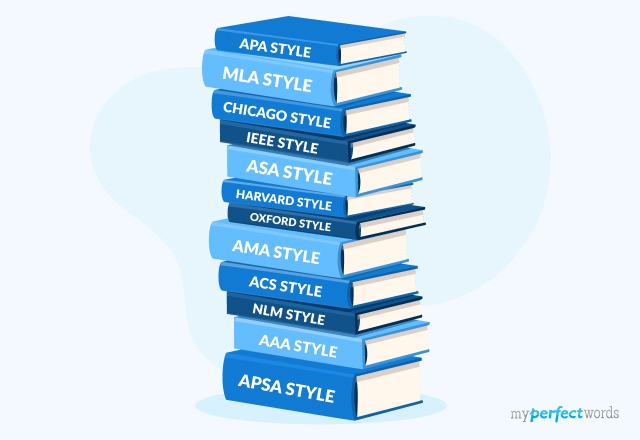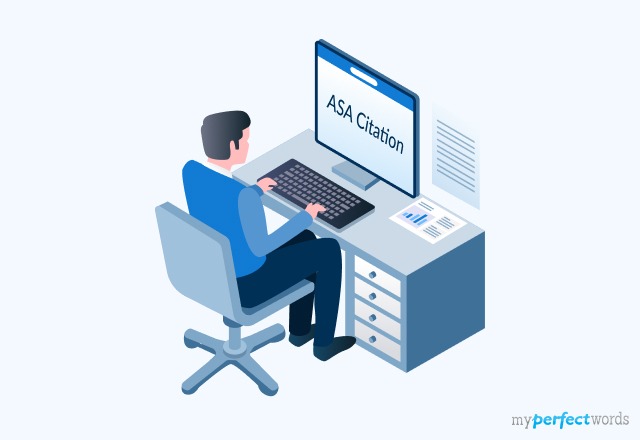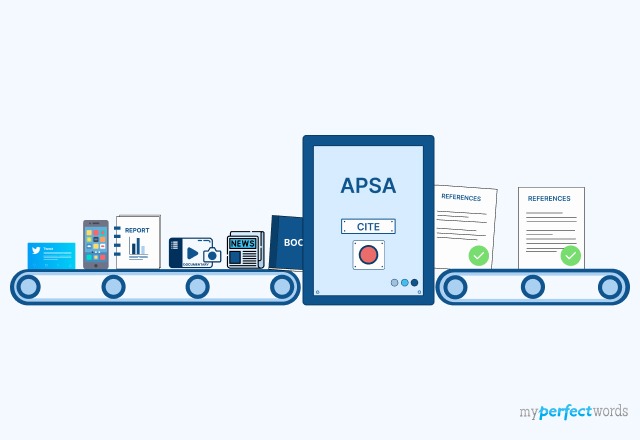What is the IEEE Citation Format?
The IEEE Citation Style (Institute of Electrical and Electronics Engineers) is a specialized formatting style, designed for subjects like engineering, computer science, and information technology. This format is based on the Chicago Manual of Style and it is commonly used to cite and format technical papers.
It is the go-to choice for students and researchers in these fields, providing a structured format for books, journals, papers, and websites. While you can create citations manually, using an online citation maker can simplify the process.
How to Do IEEE Format Citation?
Unlike some other citation styles, IEEE citation style doesn't require you to include the author's name or the publication date in the in-text citation.
Instead, a number is placed in square brackets, which corresponds to a reference listed at the end of your paper. When citing multiple sources, ensure to number them separately, such as [1], [2], [3], and so on.
In-Text Citation
For in-text citations in IEEE style, simply add the reference number in square brackets or parentheses in front of the relevant phrase or sentence.
Always include a space before the first bracket, and when mentioning a source again, refer to it by its corresponding number.
For instance:
- "The theory has proved the point effectively [2]."
- "The previous experiment was not as successful as expected [3]."
- "Williams [4] has presented the theory forward in 2008."
Struggling with formatting? Get our essay writing help for flawless formatting.
IEEE Citation Reference List Format
Like APA and MLA format paper, IEEE format also requires a reference list. It should be titled "References" and centered or left-aligned at the top of the page.
Each reference is listed numerically, with the bracketed number flushed to the left. Author names are written in first initial, last name format.
Main titles are enclosed in quotation marks, and journal or book titles are italicized. Here are some IEEE citation examples:
For Printed Books:
[1] B. Klaus and P. Horn, Robot Vision. Cambridge, MA: MIT Press, 1986.
For a Chapter in a Book:
[2] L. Stein, "Random patterns," in Computers and You, J. S. Brake, Ed. New York: Wiley, 1994, pp. 55-70.
For an eBook:
[3] L. Bass, P. Clements, and R. Kazman, Software Architecture in Practice, 2nd ed. Reading, MA: Addison Wesley, 2003. [E-book] Available: Safari ebook.
IEEE Citation for Multiple Authors:
If there are more than three writers in the source then use ‘et al’ after the name of the first author.
[8] J. D. Bellamy et al., Computer Telephony Integration, New York: Wiley, 2010.
IEEE Journal Citation
For a Journal Article:
[4] J. U. Duncombe, "Infrared navigation - Part I: An assessment of feasibility," IEEE Trans. Electron. Devices, vol. ED-11, pp. 34-39, Jan. 1959.
For an eJournal from an Online Database:
[5] H. K. Edwards and V. Sridhar, "Analysis of software requirements engineering exercises in global virtual team setup," Journal of Global Information Management, vol. 13, no. 2, p. 21+, April-June 2005. [Online]. Available: Academic OneFile, http://find.galegroup.com. [Accessed May 31, 2005].
IEEE Online Citation for an eJournal:
[6] A. Altun, "Understanding hypertext in the context of reading on the web: Language learners' experience," Current Issues in Education, vol. 6, no. 12, July 2003. [Online]. Available: http://cie.ed.asu.edu/volume6/number12/. [Accessed Dec. 2, 2004].
IEEE Conference Citation
For a Conference Paper:
[7] L. Liu and H. Miao, "A specification-based approach to testing polymorphic attributes," in Formal Methods and Software Engineering: Proceedings of the 6th International Conference on Formal Engineering Methods, ICFEM 2004, Seattle, WA, USA, November 8-12, 2004, J. Davies, W. Schulte, M. Barnett, Eds. Berlin: Springer, 2004. pp. 306-19.
For the Conference Proceedings:
[8] T. J. van Weert and R. K. Munro, Eds., Informatics and the Digital Society: Social, ethical and cognitive issues: IFIP TC3/WG3.1&3.2 Open Conference on Social, Ethical and Cognitive Issues of Informatics and ICT, July 22-26, 2002, Dortmund, Germany. Boston: Kluwer Academic, 2003.
IEEE Citation for Online Articles of a Newspaper:
[9] J. Riley, "Call for a new look at skilled migrants," The Australian, p. 35, May 31, 2005. [Online]. Available: Factiva, http://global.factiva.com. [Accessed May 31, 2005].
For a Technical Report:
[10] J. H. Davis and J. R. Cogdell, “Calibration program for the 16-foot antenna,” Elect. Eng. Res. Lab., Univ. Texas,
Austin, Tech. Memo. NGL-006-69-3, Nov. 15, 1987.
IEEE Patent Citation:
[11] J. P. Wilkinson, “Nonlinear resonant circuit devices,” U.S. Patent 3 624 125, July 16, 1990.
For a Standard:
[12] IEEE Criteria for Class IE Electric Systems, IEEE Standard 308, 1969.
For a Thesis or Dissertation:
[1] J. O. Williams, “Narrow-band analyzer,” Ph.D. dissertation, Dept. Elect. Eng., Harvard Univ., Cambridge, MA, 1993.
IEEE Video Citation:
[1]Title. City: Publisher, Year Published.
Example:
[1]She's the man. Andy Fickman, 2006.
IEEE Image Citation:
[1] Author Initial. Author Surname, Title. Year Published.
Example:
[1]Aurora Australis from Space. 2014.
Formatting Paper in IEEE Style
Formatting your research paper in IEEE citation style is essential to ensure that it complies with the academic standards set by the Institute of Electrical and Electronics Engineers. One of its distinct guidelines is that the text is divided in two columns of the page.
Here are the key requirements to keep in mind when formatting your paper:
Formatting Requirement | IEEE Citation Style Guideline |
Font Style & Size | Paper title: 24 pt. Times New Roman, centered |
Text: 10 pt. Times New Roman | |
Title Page | Title centered at the top of the first page |
Abstract | 150-250 word summary of the paper |
Keywords | List of relevant keywords or phrases separated by commas, italicized |
Headings | Level 1: Roman numeral, small caps, title case |
In-text Citations | Numerical citations in square brackets |
Tables and Figures | Labeled and captioned with references in text |
Equations | Numbered with parentheses on the right side |
Main Body | Logical section organization with headings |
Results and Discussion | Clear presentation of findings and implications |
Conclusion | Summary of key findings and research impact |
Reference List | Titled "References" at the end of the paper |
Numerical references in order of appearance | |
Appendices | Supplementary materials, if needed |
Component Headings | Used for non-main text sections (e.g., references) |
Here’s a paper formatted in IEEE style:

IEEE Heading Styles
In IEEE formatting, distinct heading styles are used to differentiate between various sections of your paper. These heading styles play a crucial role in maintaining a well-structured and organized document. Here's a breakdown of the recommended IEEE heading styles:
1. Paper Title
- Written in 24 pt. Times New Roman.
- Centered at the top of the first page.
2. Level 1 Text Headings
- Begin with a roman numeral followed by a period (e.g., I.).
- Written in small caps, in title case (e.g., "Introduction").
- Centered.
3. Level 2 Text Headings
- Begin with a capital letter followed by a period (e.g., A.).
- Italicized.
- Left-aligned.
- Written in the title case (e.g., "Methods and Materials").
4. Level 3 Text Headings
- Start with a number followed by a closing parenthesis (e.g., 1).
- Italicized.
- Written in sentence case.
- Indented like a regular paragraph.
- Text of the section follows the heading immediately, after a colon (e.g., "1. Research Methodology:").
5. Level 4 Text Headings
- Begin with a lowercase letter followed by a closing parenthesis (e.g., a).
- Italicized.
- Written in sentence case.
- Indented slightly further than a regular paragraph.
- Text of the section follows the heading immediately, after a colon (e.g., "a. Data Analysis:").
6. Component Headings
- Used for various paper components outside of the main text, such as acknowledgments and references.
- Written in small caps.
- In the title case.
- Centered.
- No numbering is applied.
To sum up,
Now you've learned the ins and outs of IEEE format style, including how to cite and format your work effectively.
If you ever find yourself needing a paper perfectly crafted in IEEE style, you can rely on our professional essay writing service to assist you.
Our experienced writers will ensure your paper is in the right format, so you can concentrate on your research without feeling burdened.
Besides, tell us to just do my essay on time, and rest assured to receive top-quality work form us within the assigned deadline!














